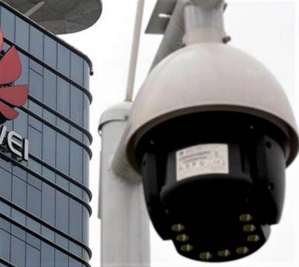
Last week, I read the essay Panopticism by French philosopher Michel Foucault, in which he talks about surveillance as a form of control which is done through the Panoptic machine. He included this essay in his 1975 book Discipline and Punish. Unlike the middle ages when punishment was violent and intended to cause severe bodily harm, Foucault’s modern theory of punishment was discipline through surveillance – make the disciplinary power invisible, and make the object of the power visible.

Foucault considers 18th Century English philosopher Jeremy Bentham’s design of the maximum surveillance prison, the Panopticon, to be the model of this disciplinary technology. Bentham’s fictional Panopticon had a simple but clever design; a circle of jail cells radiating outward from a central guard tower. Each cell faced the guard tower, and walls separated the cells from each other.
The design facilitates constant surveillance since the supervisor can see all the prisoners all of the time from the central tower, but the prisoners cannot see the supervisor or the other prisoners. Since the prisoners cannot see the guard they don’t know when they are actually being observed, but knowing that they can be observed at any time, made them discipline themselves and regulate their own behavior.

The Panopticon surveillance was especially effective because the possibility of constant observation was enough to regulate behavior – actual surveillance was not really ever needed. Foucault says – surveillance was permanent in its effects even if it is discontinuous in its actions. The Panopticon is a machine for dissociating the see/being seen dyad: in the peripheric ring, one is totally seen, without ever seeing; in the central tower, one sees everything without ever being seen (Foucault).

Foucault suggested that this surveillance model was not just restricted to prisons – it could be could be applied to hospitals, workshops, schools – in fact society as a whole – it is a tool to create obedient citizens who could be programmed to self-discipline. Which leads me to thinking – in the current digital age, are we living in a virtual Panopticon? With CCTVs, social media, and big data, the move towards constant surveillance is happening far more quickly and efficiently than Foucault could have imagined.